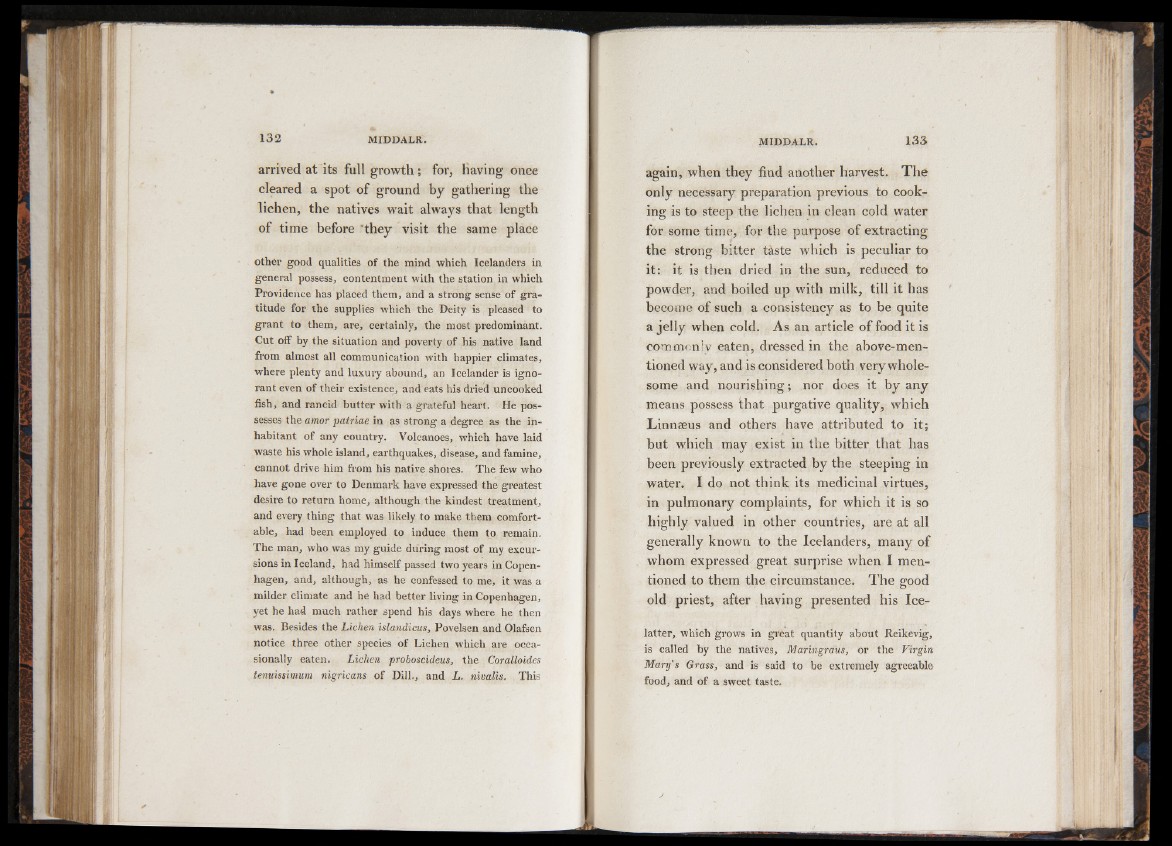
arrived at its full growth ; for, Having once
cleared a spot of ground by gathering the
lichen, the natives wait always that length
of time before 'they visit the same place
other good qualities of the mind which Icelanders in
general possess, contentment with the station in which
Providence has placed them, and a strong sense of gratitude
for the supplies which the Deity is pleased to
grant to them, are, certainly, the most predominant.
Cut off by the situation and poverty of his native land
from almost all communication with happier climates,
where plenty and luxury abound, an Icelander is ignorant
even of their existence, and eats his dried uncooked
fish, and rancid butter with a grateful heart. He possesses
the amor 'patriae in as strong a degree as the inhabitant
of any country. Volcanoes, which have laid
waste his whole island, earthquakes, disease, and famine,
cannot drive him from his native shores. The few who
have gone over to Denmark have expressed the greatest
desire to return home, although the kindest treatment,
and every thing that was likely to make them comfortable,
had been employed to induce them to. remain.
The man, who was my guide during most of my excursions
in Iceland, had himself passed two years in Copenhagen,
and, although, as he confessed to me, it was a
milder climate and he had better living in Copenhagen,
yet he had much rather spend his days where he then
was. Besides the Lichen islandicus, Povelsen and Olafsen
notice three other species of Lichen which are occasionally
eaten. Lichen proboscideus, the Coralloides
tenuissimum nigricans of Dill., and L. nivalis. This
again, when they find another harvest. The
only necessary preparation previous to cooking
is to steep the lichen in clean cold water
for some time, for the purpose of extracting
the strong bitter tUste which is peculiar to
it: it is then dried in the sun, reduced to
powder, and boiled up with milk, till it has
become of such a consistency as to be quite
a jelly when cold. As an article of food it is
commonly eaten, dressed in the above-mentioned
way, and is considered both very wholesome
and nourishing; nor does it by any
means possess that purgative quality, which
Linnaeus and others have attributed to it;
but which may exist in the bitter that has
been previously extracted by the steeping in
water. I do not think its medicinal virtues,
in pulmonary complaints, for which it is so
highly valued in other countries, are at all
generally known to the Icelanders, many of
whom expressed great surprise when I mentioned
to them the circumstance. The good
old priest, after having presented his Icelatter,
which grows in great quantity about Reikevig,
is called by the natives, Maringraus, or the Virgin
Mary’s Grass, and is said to be extremely agreeable
food, and of a sweet taste.
y